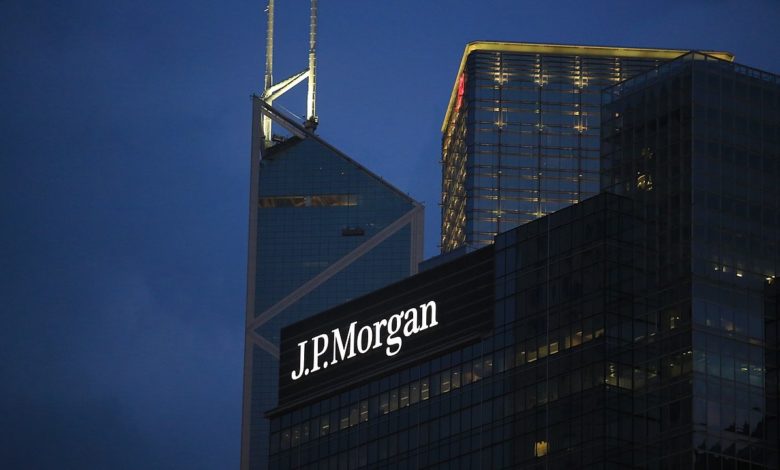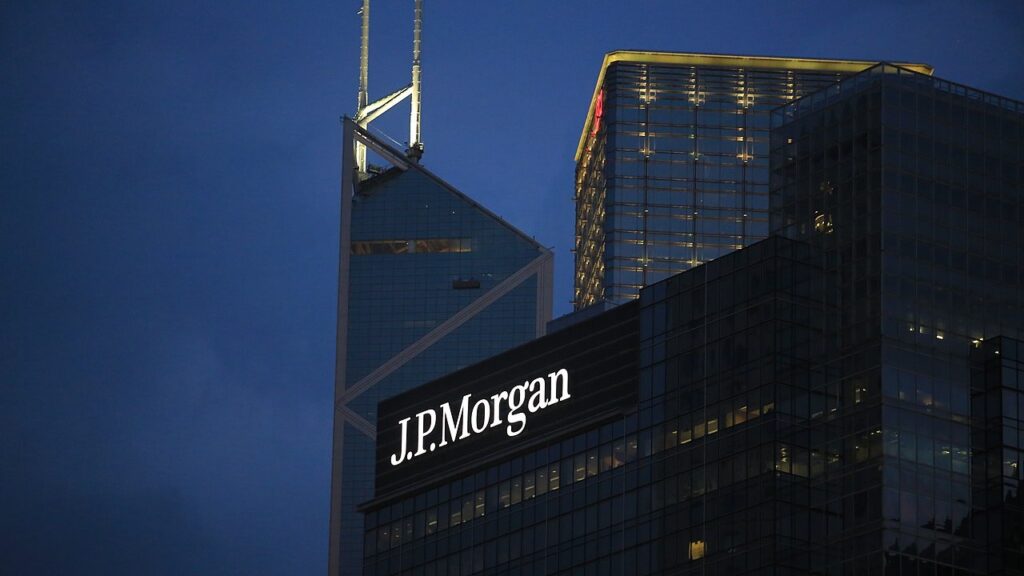JP Morgan Head: The Banking Crisis Is Not Over

Most people in the mainstream seem to think that the recent bank bailout plugged the crack in the dam and stabilized the banking sector. But one big bank boss disagrees. In an annual letter, JP Morgan Chase CEO Jamie Dimon said that the banking crisis isn’t over and that we will feel its repercussions for years to come.
As I write this letter, the current crisis is not yet over, and even when it is behind us, there will be repercussions from it for years to come.”
Dimon emphasized that “this is nothing like 2008,” but said, “It is not clear when this current crisis will end.”
Dimon’s comments sent bank stocks tumbling once again.
In fact, the collapse of Silicon Valley Bank and Signature Bank was just the tip of the iceberg. According to a Washington Post report, the total capital buffer in the US banking system totals $2.2 trillion. Meanwhile, total unrealized losses in the system based on a pair of academic papers is between $1.7 and $2 trillion.
And while the bailout addressed the immediate crisis, it did not fix the underlying problem — the fact that the entire economy is built on artificially low interest rates and money creation that the Fed has taken away. Even if the Fed bailout stabilized the banking sector for now, it’s only a matter of time before something else breaks in the economy.
The current banking crisis primarily involves small and medium-sized banks, but Dimon said that “any crisis that damages Americans’ trust in their banks damages all banks.”
While it is true that this bank crisis ‘benefited’ larger banks due to the inflow of deposits they received from smaller institutions, the notion that this meltdown was good for them in any way is absurd.”
Many politicians and pundits, especially Democrats, blame the failure of Silicon Valley Bank and Signature Bank on “deregulation.” That has led to calls for tighter regulations in the banking sector. Dimon warned against a “knee-jerk, whack-a-mole or politically-motivated” response, saying such reactions often result in “achieving the opposite of what people intended.”
Dimon accurately noted that the problems at SVB, Signature, and other troubled banks were “hiding in plain sight” and the much-ballyhooed stress tests wouldn’t have caught them because they did not test for rising interest rates. As Peter Schiff put it, the Federal Reserve flunked its own stress test.
Dimon called the stress testing regime “an enormous, mind-numbingly complex task about crossing t’s and dotting i’s,” and warned that it can actually create a false sense of security.
The Fed’s stress test focuses on only one scenario, which is unlikely to happen. In fact, this may lull risk committee members at any institution into a false sense of security that the risks they are taking are properly vetted and can be easily handled.”
In his economic analysis, Dimon pointed out in a roundabout way that inflation isn’t under control, saying “fiscal stimulus is still surging through the system.” In other words, the US government is spending a lot of money. This is inherently inflationary.
The federal government had a deficit of $3.1 trillion (2020), $2.8 trillion (2021) and $1.4 trillion (2022). These are extraordinary numbers, which ended up in consumers’ pockets, in states and local municipalities, and even in companies. We pointed out last year that you simply cannot have this level of spending and say that it’s not inflationary.”
He also hinted at the fact that central banks will not be able to keep shedding bonds from their balance sheets in the long run.
It is also important to remember that while the central banks of the world are now selling instead of buying securities, the governments of the world have larger debts to finance. The United States alone needs to sell $2 trillion in securities, which must be absorbed into the market. This turn of events is generally true globally.”
He concludes that we may be heading for “higher inflation and higher interest rates than in the immediate past.”
While Dimon’s analysis is framed in a predictably mainstream way, he stumbles on a number of important truths, and he reminds us that the Federal Reserve and the politicians don’t have things as “under control” as they would like for us to think.
Call 1-888-GOLD-160 and speak with a Precious Metals Specialist today!
Buka akaun dagangan patuh syariah anda di Weltrade.
Source link







